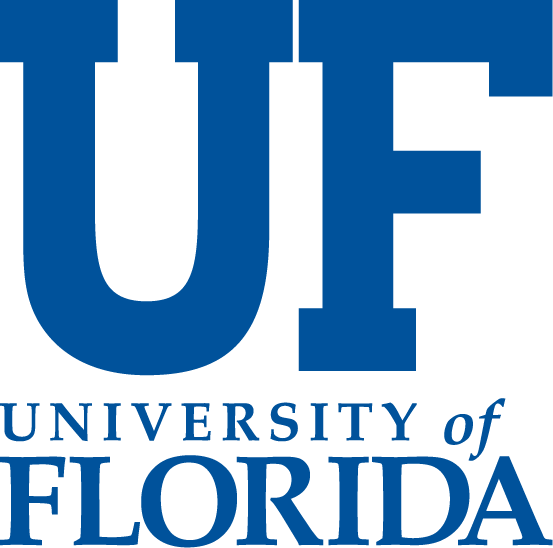
The University of Florida (UF) and Elsevier have entered into a partnership to build links between the institutional repository and ScienceDirect. Yesterday, writing here in the Kitchen, David Crotty explained some of the potential benefits of the partnership. It has also received quite a bit of criticism in recent weeks, including from friends and respected colleagues. Judy Russell, the dean of libraries at UF, is also a friend of mine, and I was recently able to interview Judy about the partnership and her aspirations for Florida’s role in it. I have found it useful to try to understand the different sides of what seems to me to be a debate about how best to utilize the increasingly mature infrastructure and programmatic capacity for scholarly communications.
The Elsevier-UF partnership itself is straightforward. It links the institutional repository with ScienceDirect via API, depositing into the repository metadata for all publications with at least one UF author. Where the final version of the article is available on an open access basis, it is made freely available through a link to ScienceDirect; otherwise it is available through regular authentication and authorization mechanisms. In a second stage of the partnership, accepted manuscripts will be similarly linked. As a result, there will be less pressure for UF to track down manuscripts from its authors to ensure compliance with various article deposit mandates. Judy hopes the partnership will be extended to additional publishers, possibly under the auspices of CHORUS.
Critics have focused on several concerns. At the heart of the dispute appears to be a disagreement about what the purpose of an institutional repository should be. The Steering Committee of the Coalition of Open Access Policy Institutions sees “the fundamental purpose of institutional repositories as tools for enabling [open] access,” taking issue with the shift in “the UF repository’s focus to serving as a discovery layer for pay-walled articles.” I found this fascinating because my colleague Deanna Marcum and I found in a recent project that universities have a far more complicated set of objectives for their repositories than simply to advance open access.
When I spoke with her, Judy was clear about where she stands relative to commercial journal publishing and open access. She laments “the godawful price increases we are getting” from commercial publishers and expresses pride in her work to negotiate for her own institution and on behalf of others in Florida to achieve the best possible license with Elsevier. She describes herself as an “advocate for open access,” who has been supportive of funder mandates for article deposit and whose library has devoted real resources to compliance with those mandates. She continues to push for a university policy at Florida that will mandate article deposit.
But UF’s objective in this initiative is not to expand open access. Judy noted that in entering this arrangement with Elsevier, “the primary objective…is to facilitate compliance [with article deposit mandates] and understand and aggregate the intellectual work of our faculty.” With stories circulating about at least one federal research agency that declined to support a research scientist who had failed to comply with the terms of a mandate, university research offices as well as research libraries are taking on more of a role to ensure compliance. And more generally, there is great interest in understanding and promoting the research excellence taking place at an institution, whether through a repository or third-party solutions. Providing a publicly available space to browse all the research outputs of a university is seen to have value, perhaps especially for a state-controlled institution.
As a result of the initiative, UF has identified roughly 1,100 articles in each of the past four years with at least one UF-affiliated author, among which are a total of some 500 open access articles. These materials, and eventually the accepted manuscripts, will be available as a showcase of UF work and will reduce the burden of complying with various deposit mandates. It is certainly true that this facilitates discovery of paywalled and open access articles alike and drives traffic to ScienceDirect.
Blogging at Inside Higher Ed, Barbara Fister observed that “While libraries may struggle to get content into their IRs [Institutional Repositories], publishers are reading the writing on the wall and are staking their claim in an open access future. Apparently they want to own as much of the infrastructure of this future (and the metrics those platforms will generate) as possible.” In this respect, I asked Judy about whether it was against libraries’ interest to drive traffic to a commercial site. After all, those clicks are used to establish the value of the publications in subsequent pricing negotiations. But Judy has another perspective. She sees a risk that only some usage is aggregated for altmetric purposes, and she is convinced that UF scholars want to ensure that they receive maximum “credit” for their work in this way.
At a high level, critics express clear concern that this partnership is “orthogonal” to the vision of a sort of commons where scholarly information, at least, is shared and not commercialized, as two librarians from MIT outlined in a critique, “Beware the Trojan Horse”. This piece, co-signed by all the other authors for the In the Open blog, clearly expresses some nuance in their argument against commercialization, as it supports a role for university presses explicitly. The authors admire the alternatives but note their limitations (naming “ arXiv, DPLA, HathiTrust, Internet Archive, ORCID, SHARE”) and urge that we “jump the political, cultural, organizational, and economic hurdles” that face academia in achieving their vision.
Judy expresses conviction that public access policies are advancing and that we are moving steadily into an open access world. But she is building partnerships such as this one to address other goals that she sees as vital for the university, such as compliance and public presence. Especially as other publishers make their content available in partnerships such as this one, it will be interesting to observe whether libraries continue to develop repositories and scholarly communications programs as an alternative to the publisher ecosystem or in partnership with it.
Discussion
5 Thoughts on "Building a Repository in Partnership with Elsevier: The University of Florida’s Perspective"
What is of concern from a professional perspective is the use of such aggregates to “count coup”, especially by funding agencies for grants and some institutions for promotion and tenure. The use of journals to act as surrogate vetting of an author’s oeuvre is problematic when academics often understand little of their campus colleagues. Now it seems as if these parties want to find the piles of coup all in one location counted and stamped.
Phase two of this initiative is really exciting to me – getting manuscripts deposited in an automated way rather than adding labor to the already busy researchers and ensuring that all ELS manuscripts are available – even those not under a compliance mandate.
But, I’m also intrigued with an aspect that hasn’t been mentioned yet in all I’ve read of this. Even if libraries “only” got metadata via APIs from publishers, it would put libraries in a position of having the necessary dataflows to build more useful and complete researcher profile systems for their institutions rather than making do with expensive subscriptions to RIS products like PURE or Academic Analytics, which currently over-privilege reporting scholarship in STEM fields and, in a self-reinforcing cycle, because such systems are increasingly the basis for budgetary allocations, drive funding away from humanities, arts, and some social sciences. See, for example, https://www.insidehighered.com/news/2015/12/11/rutgers-professors-object-contract-academic-analytics.
I’m quite confident that smart folks at Elsevier and other publishers have thought of this (to anticipate those who will respond – “don’t give them ideas!”). I would imagine they have calculated the likelihood that libraries can pull this off and see the risk to the economic bottom line as low. But, maybe the library community will surprise them?
There are certainly interesting efficiencies to be gained in such approaches. But there is also a library/publisher trust gap that needs to be bridged. Illogical as it may seem in a networked world, I think it would help a lot if Elsevier and other CHORUS publishers were willing to facilitate deposit of a local copy of an accepted manuscript / allowed version into the library IR as well as providing a link out to publisher servers. If the publisher’s understandable objection to such an arrangement is around losing usage data, some libraries have expressed willingness to enter into data exchange arrangements. There’s a lot to be gained here, but some historical tensions need to be recognized.
I thought CHORUS publishers already provide participating libraries a dark archive of the articles in question via CLOCKSS or Portico? Doesn’t that already bridge the trust gap adequately?



